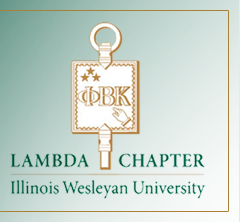Graduation Year
2013
Abstract
Women’s discourse in Greek society has been traditionally controlled and restricted by strict sociocultural codes. Barred from participating in the exclusively male public political scene, women have developed another mode of expressing their concerns and opinions about the world around them-through performance of ritual laments. In these songs of mourning women are empowered through their pain to address publicly issues of social importance; the most successful performers skillfully weave sometimes abrasive, often persuasive, and always highly charged judicial and political language into their lament. Women use this medium of public mourning as a protected vehicle through which they pronounce moral judgments with political immunity, much like the professional male praise-poet, who uses his craft to direct strong but subtle criticism toward the individual whom he is praising.1
Recommended Citation
Dunham, Olivia
(2014)
"Private Speech, Public Pain: The Power of Women's Laments in Ancient Greek Poetry and Tragedy,"
CrissCross: Vol. 1:
Iss.
1, Article 2.
Available at:
https://digitalcommons.iwu.edu/crisscross/vol1/iss1/2

